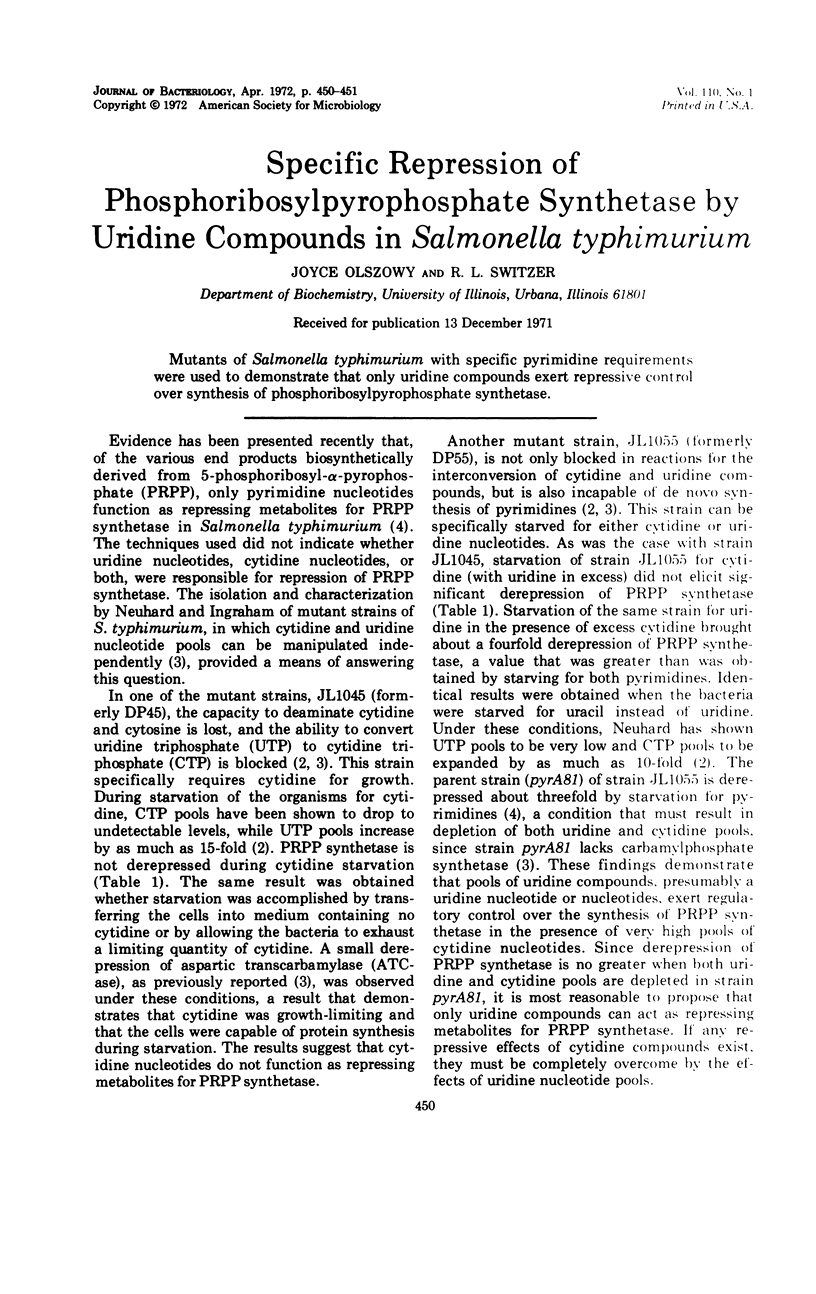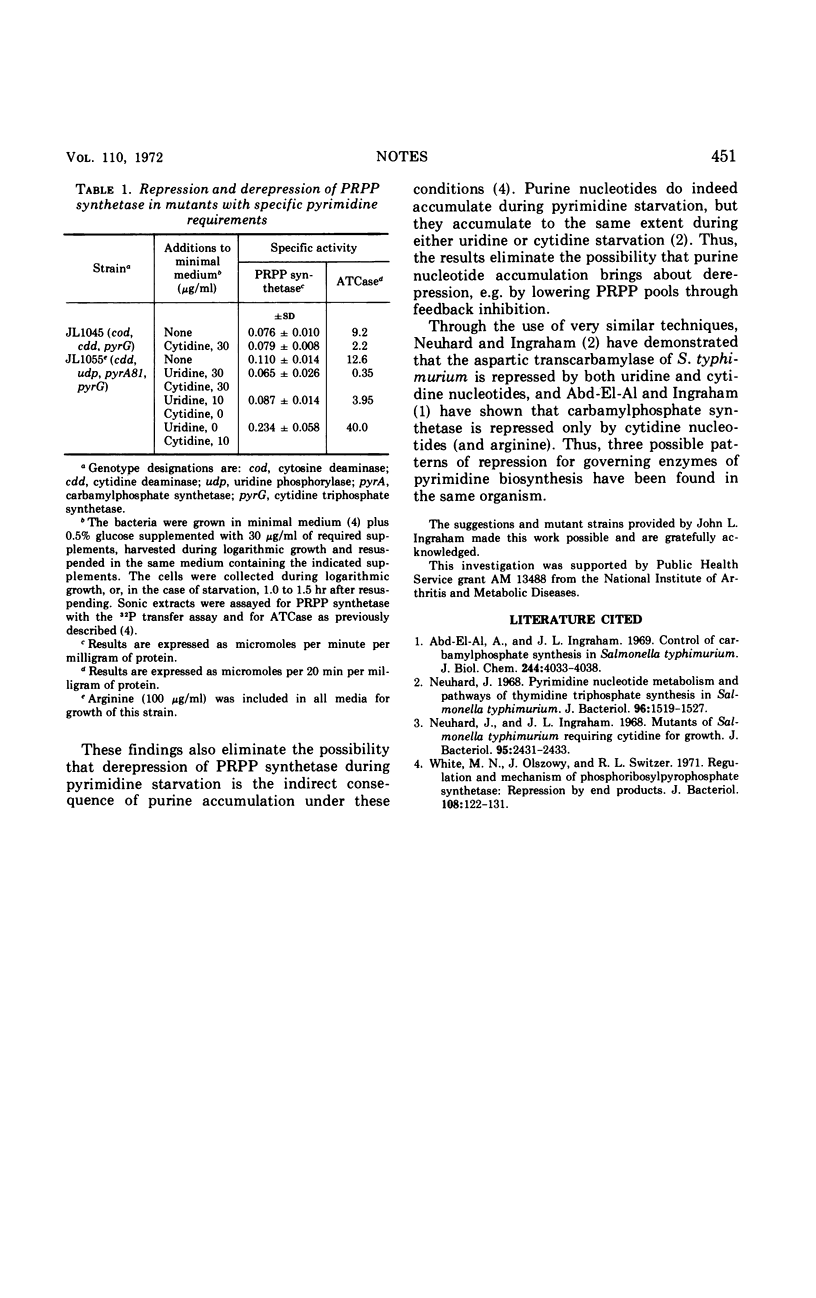Abstract
Mutants of Salmonella typhimurium with specific pyrimidine requirements were used to demonstrate that only uridine compounds exert repressive control over synthesis of phosphoribosylpyrophosphate synthetase.
Full text
PDF

Selected References
These references are in PubMed. This may not be the complete list of references from this article.
- Abd-el-Al A., Ingraham J. L. Control of carbamyl phosphate synthesis in Salmonella typhimurium. J Biol Chem. 1969 Aug 10;244(15):4033–4038. [PubMed] [Google Scholar]
- Neuhard J., Ingraham J. Mutants of Salmonella typhimurium requiring cytidine for growth. J Bacteriol. 1968 Jun;95(6):2431–2433. doi: 10.1128/jb.95.6.2431-2433.1968. [DOI] [PMC free article] [PubMed] [Google Scholar]
- Neuhard J. Pyrimidine nucleotide metabolism and pathways of thymidine triphosphate biosynthesis in Salmonella typhimurium. J Bacteriol. 1968 Nov;96(5):1519–1527. doi: 10.1128/jb.96.5.1519-1527.1968. [DOI] [PMC free article] [PubMed] [Google Scholar]
- White M. N., Olszowy J., Switzer R. L. Regulation and mechanism of phosphoribosylpyrophosphate synthetase: repression by end products. J Bacteriol. 1971 Oct;108(1):122–131. doi: 10.1128/jb.108.1.122-131.1971. [DOI] [PMC free article] [PubMed] [Google Scholar]


